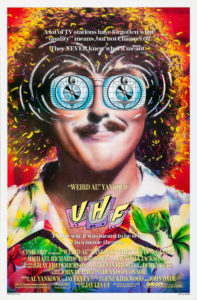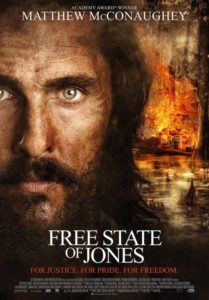Spoiler Warning: This review goes into plot details and specifics of the of the film. If you haven’t seen this film and want to, proceed with caution.
If there’s one thing that Hollywood producers and studios hate more than being held accountable for any wrongdoing they commit, it’s losing money. After all, these are people who are paid to know what regular Joes will pay their hard-earned money from their 9-5s to see. Problem is, most of these same people have never lived in the real world, and so are uniquely unqualified to say what the normies want. Odds are, when a movie becomes a major hit, it’s a stroke of luck rather than anyone’s ability to tap into the mainstream. The entertainment business, and every move made within, is a risk.
To minimize this risk, studios like to boil down the filmmaking process to formulas and trends. The basic thought process is that if Movie A sells a certain number of tickets, then Movie B, which is in the same genre and about a similar subject, should sell the same or more tickets. Their screenplays may even have the same or similar beats and plot points. On the flip side, if Movie B sells fewer tickets than expected, it’s because the public has lost interest in that genre. As Lindsey Ellis stated in her video Dead Genres Tell No Tales, it’s never because the movie was bad. No, they couldn’t have made a bad movie. That type of film is just “out.” So, they move onto the next so-called trend. This is why we have so many superhero movies now, and why we had so many vampire and YA movies awhile back.
To follow these trends, producers need to find an intellectual property they own that’s suited for it. Failing that, they find the next best thing: something in the public domain they can screw with and change without resistance. Which is why, for the next two entries in Summer Blockbusters That Weren’t, I’m looking at two very different films on the same subject: King Arthur. Not to see how two different filmmakers can produce different works, at least not entirely. I want to see how they came to be in the times they were produced and see how each film tried to copy the popular fads of their years. Each came at a time when their type of film was popular, so why were audiences so indifferent?
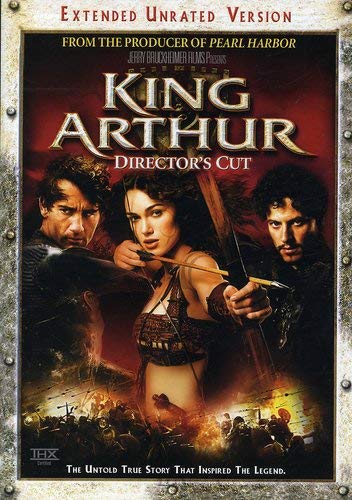
First up is the Jerry Bruckheimer-produced, Antoine Fuqua-directed, King Arthur. Coming from the mid-2000s, this was one of several films made in the wake of Gladiator, which revived the historical sword-and-sandals epic. Since this tale has been told on film many times before, the decision was made to ground the film in reality, a style growing more popular at the time (Batman Begins came after this, shockingly). Trends were even followed in the casting. Keira Knightley was cast, right after her breakout role in Pirates of the Caribbean. For the title character, It was a choice between Clive Owen and Daniel Craig. Owen was chosen because Bruckheimer thought the film would get a boost when he was inevitably chosen to be the next James Bond. Oops.
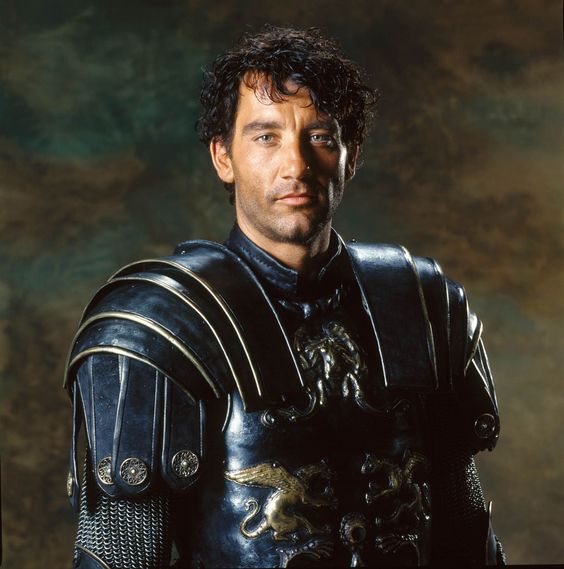
You may be asking yourself, “If they take the fantasy of King Arthur out, what’s left?’ Not to worry, hypothetical readers, because they based this movie on actual history, reinforced by recent archeological findings—Hollywood speak for they made most of it up. In this, Arthur is a respected Roman commander during the fall of the Roman Empire. He’s got his own style of leadership which is at odds with the church, but inspires undying loyalty. He eventually becomes the chosen ruler of the Brits, and this is said to have inspired the legend. Some historians have argued that this could be the case, but there is nowhere near a consensus. There are countless theories and interpretations, and doing research on your own will lead you down an endless rabbit hole of confusion, so do so at your own risk. My point is that the marketing gimmick of this being “the true story” is just that, a gimmick.
In theory, a magicless telling of the tale doesn’t sound like a bad idea. We all know that if any of the myth is true, there were probably no ladies of lakes, wizards, or magic swords. It could be interesting to see how it could’ve really happened. It’s just a shame that this film is not.
It starts the same way all classic films start: with a little opening text explaining the premise, and then opening narration. Starting with one of those devices is risky. Starting with both is rarely a good sign. The narration is from Lancelot (Ioan Gruffudd), so you might expect him to be the point-of-view character, but the movie never commits to that. He dumps some exposition about the time period that is hard to follow if you’re not familiar with history, but basically kid Lancelot is taken from his home to fight in the army. If he survives for 15 years, he is free. 15 years later, he’s one of Arthur’s Knights of the Round Table. The remaining 7 (of the traditional 12) complete their final mission, defending a jerkoff Bishop on a road trip. Then, they’re forced into another final mission before he’ll free them: go into the territory of the enemy natives and rescue an important family from invading Saxons, because their son is in line to become Pope.
Owen is an underrated actor, and he makes for a solid lead here. He carries himself with just the right balance of world-weariness, dignity, and danger. When he threatens someone, you believe him. There isn’t much opportunity to get to know the famed knights, or learn their names. Screenwriter David Franzoni attempts to show the bonds between them with scenes of joking and hanging out, but it feels forced at times. Arthur and Lancelot get the most interaction, but they talk about their friendship rather than show it. Due to the amount of characters, the rest are given the classic Dirty Dozen characterization: one or two defining characteristics while being played by a recognizable and charismatic actor. It’s a murderer’s row of supporting cast though, including Joel Edgerton, Ray Winstone, Ray Stevenson, and most amusingly, future Hannibal co-stars Mads Mikkelsen and Hugh Dancy. Mikkelson and Winstone come off the best because they have the most defined personalities: Mikkelson is the crackshot goth who’s unafraid of death, and Winstone the loud, boorish jerk with a heart of gold.
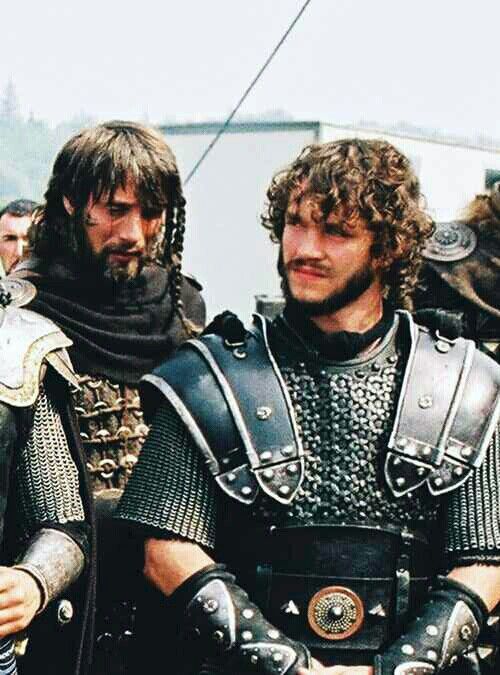
Once they get to the family, two flaws in the story become clear: No one has much of an arc, and the Saxons aren’t much of a presence, only a threat because the movie needs a clear-cut bad guy to fight the good guys. Arthur is given some characterisation about how much he idolizes Rome, but it’s obligatory.
The patriarch turns out to be another jerk, who has enslaved the townsfolk and allowed the church to torture and kill native Woads (Picts in real life). This could have been an opportunity to contrast Arthur’s sense of duty with his morality, and allow his idealism to evolve throughout the film. Instead, the movie goes the easy route, giving him and his men an anachronistic set of values already formed. They rescue the Woads, including Guinevere (Knightley, doing her best in a cliched action girl role), lock the monks in their own prison to rot, free the townsfolk, and force the family to come with them. It’s worth noting that Fuqua’s prior film was Tears of the Sun, a military film with an almost identical plot about a Navy Seal Team sent to Africa to rescue a doctor from insurgents, who then decided they couldn’t leave innocent civilians to die. I don’t know if this is a coincidence (the films had different writers), but the story was handled better there, with the decision treated as part of a character arc.
I said in my previous post how the films I had looked at for this so far were clearly the work of some kind of auteur. That is not the case here as King Arthur feels very much like it was made by committee. Fuqua is not a director with much of a definable style. He more personifies studio competence. He mostly brings that here. The film is well shot, pretty easy to follow, and the action is decent. The heroes, now teamed up with Guinevere, finally run into some of the Saxons on a frozen lake, and use some clever arrow shooting to force them into a single klump so the ice will crack. It’s a reasonably entertaining action sequence, though it doesn’t accomplish much except fulfill an action quota and get a knight killed. It becomes clear, however, that this is the warmest winter in history. It’s snowing through most of this mission, but no one’s breath is visible, no one shivers even in light clothing, and the snow seems to be rising from the ground rather than falling from the sky. It was shot during summer, and it’s obvious.
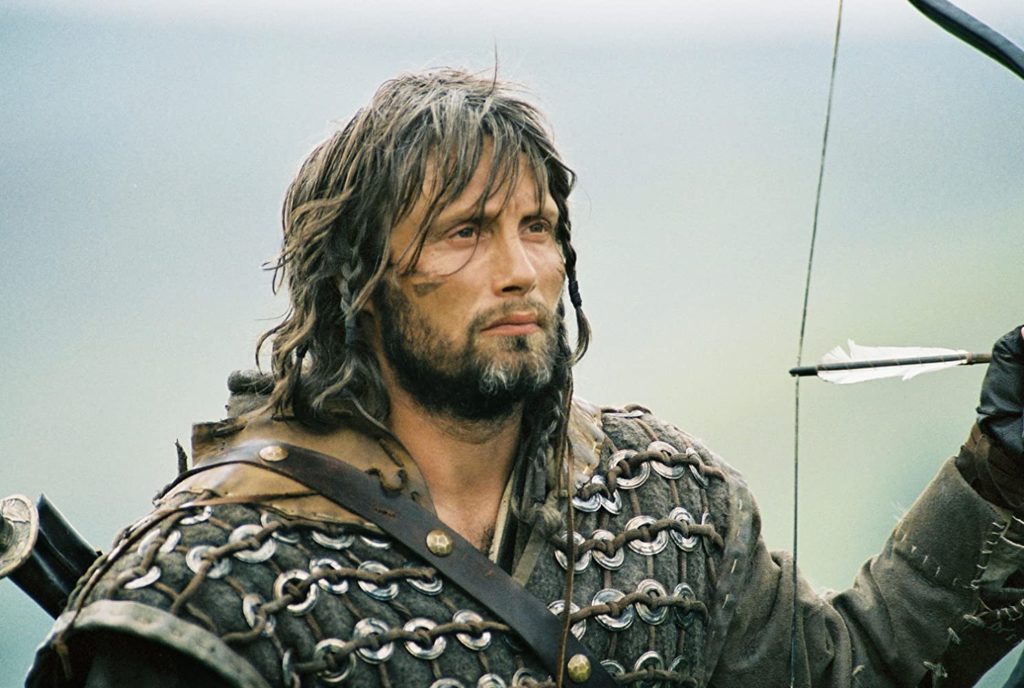
There are references to certain parts of the Arthurian legend, such as the sword in the stone and the famous love triangle, but they twist things. For example, Excalibur belonged to Arthur’s father, and he pulled it from his grave to try and save his mother from the Woads. Lancelot makes some longing faces at Guinevere, but they barely interact, and he dies before anything can happen between them. Merlin (Stephen Dillane) is the leader of the Woads, and decides to make an enemy mine agreement with Arthur. These nods to the myth feel shoehorned in. I’d go as far to say this feels like a completely separate script that got some Arthurian tropes forced in to make it a King Arthur movie.
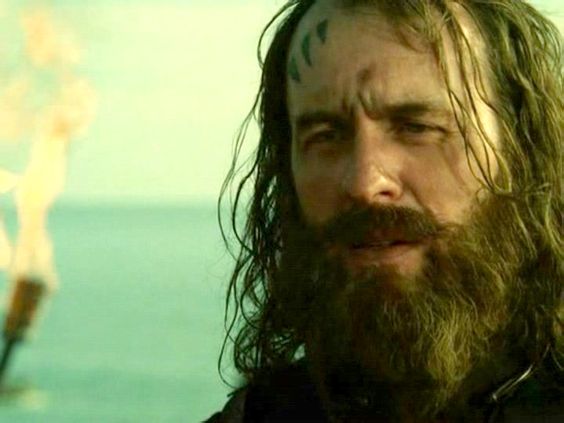
They make it home and the kid they were sent to rescue finally gets some dialogue. He’s pretty much been a living Macguffin the whole movie, and his only other purpose is to dispel Arthur’s romantic notion of Rome and fulfill his arc. What’s odd is that the boy’s father died on the journey by Guinevere’s hand, and he doesn’t seem to care. He keeps the same blank stare he had before, then disappears from the movie. One gets the feeling he was some producer’s kid they had to cast, but cut his part down because he couldn’t act.
The final battle, again, is well staged. The Saxons, whose leader is played by Stellan Skarsgard in the film’s best performance, reach the fort where the leads are, so the 6 remaining knights make a plan with the Woads to fight them. They trick them into taking several rounds of arrows and horse charges to narrow them down before fighting head on, and it’s a decent finale. The problem is it’s hard to care about any of it. You don’t care about the knights who die during the battle because you barely know them, and Arthur’s melodramatic rage against the heavens falls flat. The Woads are nameless outside of the public domain characters. The Saxons are just the token bad guys with little unique about them. The choreography is fairly realistic. It’s just a shame the fighting is so bloodless. The movie was cut from an “R” rating to a “PG-13,” another trend of the time to attract more teenagers to buy tickets. Fortunately, we’re finally getting away from this practice.
The film ends with an abrupt time jump where Arthur and Guinevere wed, and the Brits are united behind him. In other words, the title character was crowned offscreen. This is a film that desperately needed to be an epic, but instead it’s just a standard action flick with good guys and bad guys.
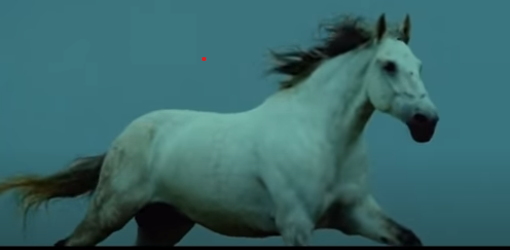
GRADE: C
King Arthur landed with a thud in the U.S. and was only moderately successful elsewhere. It’s easy to see why. The film is average and dull. It exists solely to follow popular trends and cliches in movies of the time, and as a result has no identity of its own. There’s some good acting and action, and as stated before it’s competently directed, but there are better action and romance flicks out there. I watched the theatrical cut for this because the director’s cut was unavailable, and supposedly that version is quite different. The version that got theatrically released, however, is clearly edited by committee and is pretty bland. I’ve known some people who have enjoyed this movie more than I did, and if you see this, I’d love to hear your opinions on it.



